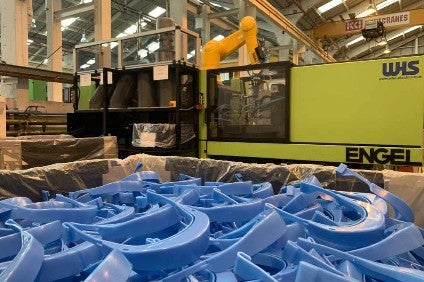
Tata Motors' Jaguar Land Rover is scaling up production of protective face visors to support the fight against coronavirus.
New tooling will produce a further 14,000 visors each week for key workers across the UK.

Discover B2B Marketing That Performs
Combine business intelligence and editorial excellence to reach engaged professionals across 36 leading media platforms.
Earlier this month, the carmaker announced the manufacture of 3D printed face visors at its product development centre in Gaydon, which it claims has one of the most advanced 3D printing facilities in Europe.
Visors have been produced and shipped to NHS Trusts across the UK, including the Great Western Hospitals NHS Foundation Trust and (local) South Warwickshire NHS Foundation Trust.
Now using injection moulding tooling supplied by WHS Plastics of Sutton Coldfield, the operation will produce at least 2,000 per day with one polypropylene headband made every 30 seconds.
Jaguar Land Rover is also releasing its NHS-approved CAD design in the hope that businesses with additive manufacturing facilities will join the global call for more personal protection equipment (PPE).
Each face visor has been designed to be reusable and can be easily dismantled and cleaned before being used again, safeguarding NHS trusts against future shortages.






